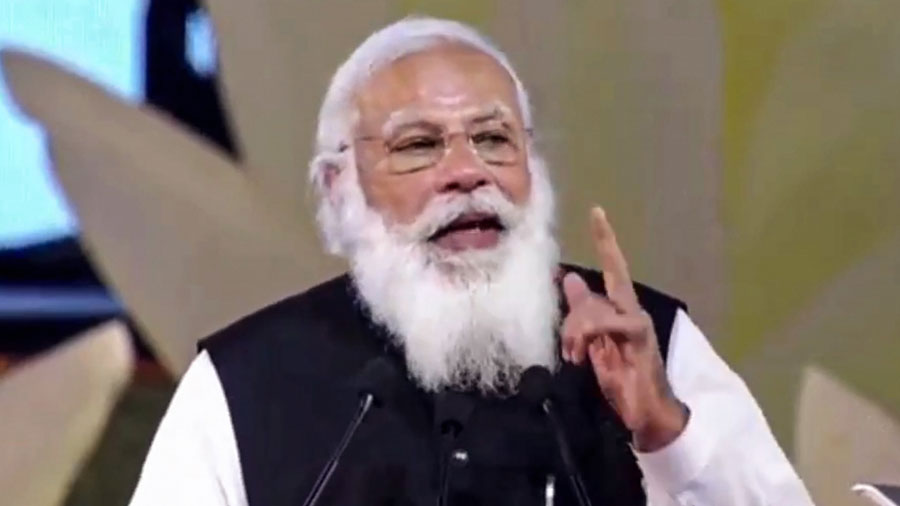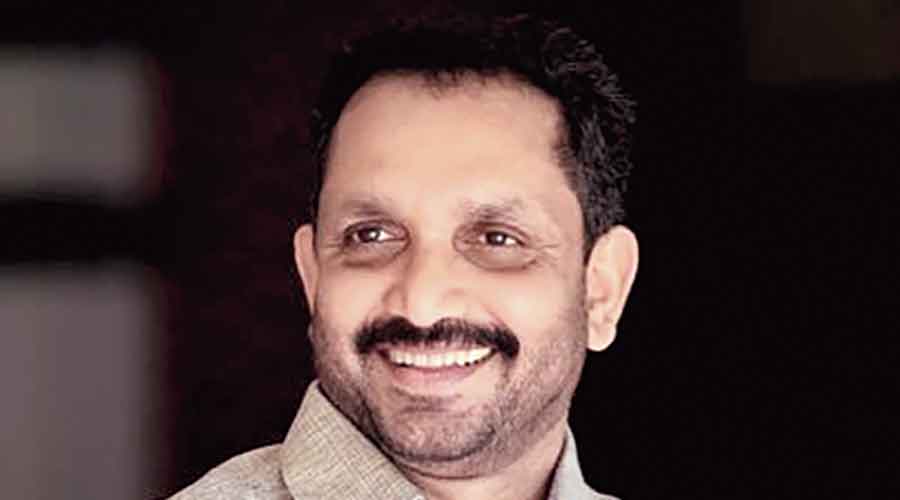The drubbing in the Bengal elections and its impact on national politics where Narendra Modi’s aura of invincibility has been sullied, coupled with the possibility of a third Covid wave on the back of a fierce second, appears to have shaken the top leadership of the RSS-BJP.
The brass has been holding hectic parleys to take stock and prepare for impending challenges.
RSS chief Mohan Bhagwat and nine other top leaders of the BJP’s ideological fountainhead are in the midst of a three-day informal meeting in Delhi to discuss, among other things, the “post-poll violence in Bengal” and a third pandemic wave in the aftermath of a second that has exposed the shortcomings of the Modi government like never before.
BJP chief J.P. Nadda is scheduled to chair a session on Saturday and Sunday with party general secretaries, again to size up the emerging situation with special focus on preparations for the next round of Assembly polls.
BJP leaders feel the Bengal elections, where Mamata Banerjee single-handedly took on and trounced the entire might of the BJP led by Modi and Amit Shah, has shattered the perception of the BJP being unbeatable, and careful planning is needed on all fronts.
Before these two meetings, RSS and BJP leaders had separately and jointly held unscheduled discussions, signalling the jitters in the ruling camp. RSS general secretary Dattatreya Hosabale first met BJP leaders in Delhi and then travelled to Lucknow, the headquarters of Uttar Pradesh where elections are due early next year, to get a feedback.
Internally, party strategists feel the Bengal defeat, made worse by the extreme anger over the Centre’s mishandling of the second Covid wave, has severely dented the BJP’s image. Now if a third Covid wave sweeps the country, it could have a devastating impact on the party’s politics, apart from playing havoc with people’s lives and livelihood.
Six states — Uttar Pradesh, Uttarakhand, Punjab, Himachal Pradesh, Goa and Gujarat — go to the polls in 2022. Barring Punjab, the BJP rules all the other states.
While Uttar Pradesh is the cynosure of the elections to be held in the first half of 2022, Gujarat, Modi and Shah’s home state, will attract attention in the latter half of the year.
BJP strategists feel the outcomes of the state polls in 2022, particularly in Uttar Pradesh, will set the tone of the country’s politics.
Although RSS leaders claimed that Bhagwat’s three-day meeting had nothing to do with politics, at the same time they conceded that post-poll violence was top on the agenda of the discussions.
“The post-poll situation in Bengal is very disturbing. It needs the attention of the country,” an RSS leader said. “We also need to prepare for a possible third wave of Covid, taking lessons from what the country faced recently.”
The RSS-BJP had hurled itself with full force into the Bengal elections, turning it into a high-stakes battle in a state the saffron camp considers significant to its ideology. The outcome has come as a big blow, BJP leaders acknowledged.
The BJP’s desperation has become all the more evident given the way the central government and the party have been trying to assert themselves in Bengal, through the governor and the investigative agencies, despite the rejection by the people.
The RSS, too, has in a statement urged the Centre to intervene and “take all necessary steps” to ensure the Mamata government acts against those engaged in post-poll violence. The BJP had alleged that its cadres and voters were being targeted by Trinamul, also trying to give it a communal spin in keeping with its campaign tactics that bit the dust.
As top RSS leaders met, a junior Union minister and a BJP spokesperson on Thursday held a virtual interaction with party cadres in Kerala over the post-poll violence in Bengal, trying to widen its drive.
The main reason behind the continued push in Bengal and the disruptive tactics, according to BJP insiders, was the fear of losing leaders, cadres and even voters in the run-up to the 2024 Lok Sabha polls.
After the Bengal debacle, both the RSS and the BJP are worried about the Uttar Pradesh elections, fearing that the political fallout and the anger of the people over the government’s tackling of the pandemic could make the party vulnerable.
“While the second coronavirus wave seems to be subsiding, we are worried about a third wave. Elections in Uttar Pradesh are scheduled in February-March and if the third wave strikes just before that, we could be in trouble,” a BJP leader said.











